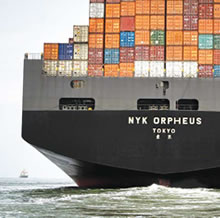 The past two and half years have seen the world grapple with some of the biggest challenges facing humanity in recent times. Kenya and Kenya’s floriculture industry was not spared by the effects of the Covid-19 pandemic.
The past two and half years have seen the world grapple with some of the biggest challenges facing humanity in recent times. Kenya and Kenya’s floriculture industry was not spared by the effects of the Covid-19 pandemic.
Whilst demand for our products remained strong, after getting over the initial shock of Covid, freight or should I say lack of freight capacity coupled with massive hikes in freight rates, introduction of more stringent taxation, the industry grappling with control of the False Codling Moth (FCM) has made the last period challenging.
Despite these challenges, the industry adapted, as it does and performed remarkably well over the last two and half years.
Looking to the future, the industry is faced with uncertainty on demand for products coupled with massive increase in inputs, continued weakening of the Euro against the US$ all of which is indicating that it is entering a period where the sectors margins will be squeezed.
Importance Of The Floriculture Sector In Kenya
Floriculture remains crucial to Kenya’s economy, accounting for more than 70 per cent of the country’s foreign exchange earnings from horticulture.
 The volume of flowers exports increased from 173 tons in 2021 to 210 tons in 2020, while the value increased from Kshs. 107 billion to Kshs. 110 billion during the same period.
The volume of flowers exports increased from 173 tons in 2021 to 210 tons in 2020, while the value increased from Kshs. 107 billion to Kshs. 110 billion during the same period.
The industry remains one of the largest employers in the country, providing employment primarily in the rural area to approximately 350,000 people directly and many more people indirectly, majority being women.
Kenya Flower Council
KFC continues to work hard to not only serve its members but also non-members and the sector at large. It’s overreaching aim is to create a positive global recognition that Kenya Flowers are produced in a most sustainable manner. In essence, KFC is working to build a strong positive sustainable image to flowers grown in Kenya – the Kenya Flower brand. There is need for all stakeholders to work together to continue to promote a positive brand image around Kenya Flowers. If the Kenya Flower Brand is eroded, it plays against all in the industry.
Sustainability/ FOSS
Kenya Flower Council has increased its efforts on sustainability by supporting Kenyan growers and exporters through its Flowers and Ornamentals Sustainability Standards (FOSS), a globally trusted standard that sits very firmly and for Kenya proudly, central to the FSI basket of standards.
FOSS or KFC Silver as it is more commonly known is recognized as one of the only three internationally benchmarked standards set by the EU-based Floriculture Sustainability Initiative (FSI). FOSS demonstrates sustainable, social, environmental and good agricultural practice benchmarks. The standard fosters sustainability by encouraging commitment to ethical practices, innovation, and promoting equitable trading practices.
KFC’s Flowers and Ornamentals Sustainability Standards (FOSS), popularly known Silver and Gold Standard plays a critical role in ensuring sustainable and quality production of flowers in Kenya. The standard, to which all members of KFC must comply, is a trusted standard worldwide. It is one among the few internationally benchmarked standards that demonstrate sustainable social, environmental and good agricultural practice benchmarks set by the EU-based Floriculture Sustainability Initiative (FSI). The standard encourages commitment to ethical practices, innovation and promoting equitable trading practices, thus ensuring that certified producers foster sustainable, responsible and safe production of cut flowers and ornamentals.
Growers and exporters are proud of the FOSS standard as a significant marketing tool for the Kenyan cut flowers and ornamentals. The standard has enhanced the image, brand and competitiveness of the Kenyan flower as it demonstrates that the flowers have been sustainably produced.
FOSS certification entails a robust auditing process which includes making sure that they have minimal or no adverse social and environmental impact or risk along the farmers’ production processes. Some of these best practices include water conservation and recycling, efficient use and movement towards green energy, reduction in carbon emissions, reduced use of pesticides and inorganic fertilisers and implementation of projects geared towards protection of flora and fauna. It also ensures that flower producers are socially responsible by providing terms and conditions of employment, compliant with ILO Conventions.
It also guarantees that wages and other remuneration are negotiated every two years between the flower growers and the Union, and availing employees’ important social and health and safety needs such as medical services within the workplace, transport to and from the workplace, and training, personal protective equipment among others. Most of the KFC members have gone beyond these requirements and are contributing through corporate social responsibility activities to their employees and the community with school-fees; crèches for kids, tree planting, and drinking water among many others. And on governance, FOSS prohibits unethical practice and supports good governance through is ethical and anticorruption requirements that require the producers to monitor their management systems on these vices.
Logistics
On export and logistics of cut flowers, the ubiquitous challenge of freight operations during Covid- 19 call for the industry to adapt.
First was the development of Pax Freighters. This was pioneered by Kenya using passenger aircraft for transporting flowers. You will no doubt recall seeing our flower boxes being loaded, box by box onto passenger seats, overhead bins and even in the lavatories.
Every cloud has a silver lining and with the massive hike in cost of air freight the focus is now shifting to the development of finding sea freight solutions. The success and resulting uptake of shifting flowers by sea has been quite remarkable. Kenya is not just the home of the world best flower growers but also home to incredible ingenuity. The development of sea freight is a positive step forwards from a more sustainable and carbon reduction way for the sector.
Future Outlook
With an envious position of having altitude on the equator, Kenya is in a perfect position to be home for the World’s Best Flower Growers. The opportunity for future growth and development is waiting. In fact, there is potential for immense growth of the sector. Kenya is a country that does not have mineral wealth, it does however have the ideal location, smart innovative people and a government that is supportive on creating the right frame work for the sector. KFC as a voluntary BMO with the voice of the sector sits central to the future development of the sector.
